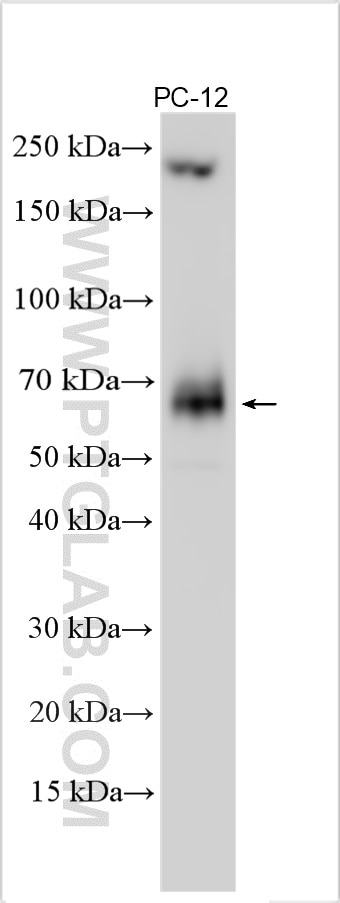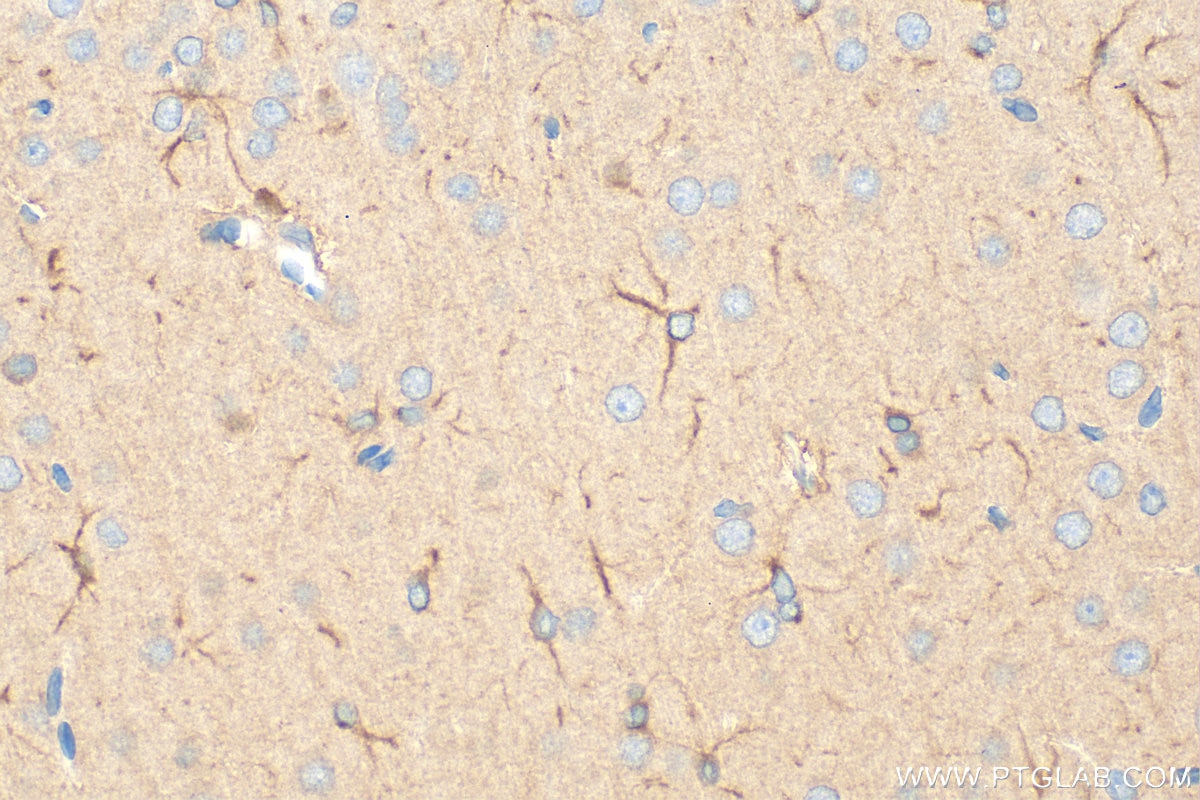Tested Applications
| Positive WB detected in | PC-12 cells |
| Positive IHC detected in | rat brain tissue Note: suggested antigen retrieval with TE buffer pH 9.0; (*) Alternatively, antigen retrieval may be performed with citrate buffer pH 6.0 |
Recommended dilution
| Application | Dilution |
|---|---|
| Western Blot (WB) | WB : 1:500-1:2000 |
| Immunohistochemistry (IHC) | IHC : 1:50-1:500 |
| It is recommended that this reagent should be titrated in each testing system to obtain optimal results. | |
| Sample-dependent, Check data in validation data gallery. | |
Product Information
32505-1-AP targets NGFR/TNFRSF16 in WB, IHC, ELISA applications and shows reactivity with mouse, rat samples.
| Tested Reactivity | mouse, rat |
| Host / Isotype | Rabbit / IgG |
| Class | Polyclonal |
| Type | Antibody |
| Immunogen | NGFR/TNFRSF16 fusion protein Eg2651 Predict reactive species |
| Full Name | nerve growth factor receptor (TNFR superfamily, member 16) |
| Calculated Molecular Weight | 46 kDa |
| Observed Molecular Weight | 70 kDa |
| GenBank Accession Number | NM_033217.3 |
| Gene Symbol | Ngfr |
| Gene ID (NCBI) | 18053 |
| Conjugate | Unconjugated |
| Form | Liquid |
| Purification Method | Antigen affinity Purification |
| UNIPROT ID | Q9Z0W1-1 |
| Storage Buffer | PBS with 0.02% sodium azide and 50% glycerol, pH 7.3. |
| Storage Conditions | Store at -20°C. Stable for one year after shipment. Aliquoting is unnecessary for -20oC storage. 20ul sizes contain 0.1% BSA. |
Background Information
NGFR, also named as TNFRSF16, Gp80-LNGFR, p75 ICD and CD271, is a low affinity receptor which can bind to NGF, BDNF, NT-3, and NT-4. It mediates cell survival as well as cell death of neural cells. The antibody is specific to NGFR.
Protocols
| Product Specific Protocols | |
|---|---|
| WB protocol for NGFR/TNFRSF16 antibody 32505-1-AP | Download protocol |
| IHC protocol for NGFR/TNFRSF16 antibody 32505-1-AP | Download protocol |
| Standard Protocols | |
|---|---|
| Click here to view our Standard Protocols |





